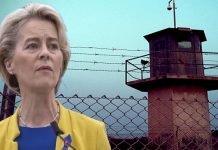
A Sudanese teenager has died trying to cross the English Channel, French authorities revealed on Wednesday.
The announcement was made on Twitter by Marlene Schiappa, minister for citizenship, who wrote: “Profound sadness: a 16-year-old Sudanese migrant who disappeared at sea last night has been found dead on Sangatte beach this morning”.
Marlène Schiappa, France’s citizenship minister, said the boy – who was carrying identification papers – had disappeared at sea overnight and was found dead on Sangatte beach.
“This unbearable tragedy moves us even more with [French interior minister] Gérald Darmanin against smugglers who take advantage of the distress of human beings,” she wrote on Twitter.
The boy is one of several migrants to have died while attempting to reach the UK in recent years.
Immense tristesse: un adolescent de 16 ans, migrant soudanais disparu en mer cette nuit, a été retrouvé mort sur la plage de Sangatte ce matin.
— ?? MarleneSchiappa (@MarleneSchiappa) August 19, 2020
Ce drame insupportable nous mobilise encore + avec @GDarmanin contre les passeurs qui profitent de la détresse d’êtres humains !
Crossing attempts by boats have been ramping up this year. Figures from France’s Maritime Prefecture earlier this month estimated that 4,192 migrants had successfully reached or attempted to reach the UK by boat by July 31.
In 2019, 2,294 migrants had made or attempted to make the crossing.
The two countries set up a joint intelligence cell to tackle the issue last month. So far this year, 22 people smugglers have been jailed and a further 11 arrests were made during the last week of July.
United Nations figures show that more than 19,500 migrants have lost their lives attempting to reach Europe across the Mediterranean Sea since 2014, but the death toll for the English Channel is not formally recorded.
Last week, the UN Refugee Agency (UNHCR) called for the British and French governments to make saving lives the “first priority”.
A parliamentary report released in November also called for the UK government to increase search and rescue operations and found its own policies were “pushing migrants to take more dangerous routes”.
The Foreign Affairs Committee, which Ms Patel served on at the time, found that government policy was “pushing migrants into the hands of criminal groups” by focusing on closing borders rather than addressing the root causes of migration or bolstering safe and legal routes to seek asylum.
But Britain is increasingly frustrated about the situation. Last month, Chris Philp, the minister for immigration compliance and the courts, described the number of crossings as “unacceptably high” and argued, “the French have to take tougher action.”
“We need stronger enforcement measures, including interceptions at sea and direct return of boats,” he went on.
A proposal to deploy military vessels to intercept migrant dinghies in the Channel was decried by the United Nations Refugee Agency (UNHCR) over fears it may result in fatal incidents.
“Although increasing numbers of people have been crossing the Channel by boat this summer, the numbers remain low and manageable. People forced by wars and persecution to flee their homes and people on the move frequently embark on risky journeys in many parts of the world,” the UN agency said in a statement.
“Saving lives should be the first priority,” it added.
Britain says the Dublin Regulation — which determines which European Union country is responsible for examining an asylum application and sets out conditions for returns — is not “fit for purpose” and is “abused by both migrants and activists lawyers.”
London believes that Brexit will allow the country to negotiate its own returns agreement.
Support Independent Journalism Today
Our unwavering dedication is to provide you with unbiased news, diverse perspectives, and insightful opinions. We're on a mission to ensure that those in positions of power are held accountable for their actions, but we can't do it alone. Labour Heartlands is primarily funded by me, Paul Knaggs, and by the generous contributions of readers like you. Your donations keep us going and help us uphold the principles of independent journalism. Join us in our quest for truth, transparency, and accountability – donate today and be a part of our mission!
Like everyone else, we're facing challenges, and we need your help to stay online and continue providing crucial journalism. Every contribution, no matter how small, goes a long way in helping us thrive. By becoming one of our donors, you become a vital part of our mission to uncover the truth and uphold the values of democracy.
While we maintain our independence from political affiliations, we stand united against corruption, injustice, and the erosion of free speech, truth, and democracy. We believe in the power of accurate information in a democracy, and we consider facts non-negotiable.
Your support, no matter the amount, can make a significant impact. Together, we can make a difference and continue our journey toward a more informed and just society.
Thank you for supporting Labour Heartlands











